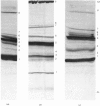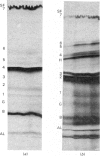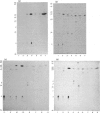Abstract
1. Bilirubin-IXalpha monoglucuronide was the predominant bilirubin in biles and meconiums of newborn humans and rhesus monkeys. Rhesus-monkey baby biles contained slightly more diglucuronide than did human baby biles. 2. Bilrubin-IXalpha glucoside, bilirubin-IXalpha xyloside and bilirubin-IXbeta were also constituents of human and rhesus-monkey baby biles and meconiums. Bilirubin-IXalpha glucuronide glucoside was present in human and rhesus-monkey baby biles but not in meconiums. The identity of the bilirubins was confirmed by u.v.-visible and mass spectroscopy of the azodipyrroles obtained by treating the bilirubins with diazotized ethyl anthranilate. The resulting azodipyrroles were identical with the corresponding azodipyrroles obtained from human adult biles and also from reduced isomers of biliverdin. 3. Bilirubin-IXbeta was present in much higher proportions in the extracts of meconiums than in the extracts of biles from the same babies. 4. Oxidation of bilirubins to biliverdins occurs in utero to a small but undetermined extent. The resulting green pigments were present in meconiums collected from the lower small and large intestines of newborn babies and rhesus monkeys. 5. Butanol extracted most of the bilirubins present in biles. This modified method proved to be quick and easy. Little hydrolysis of bilirubins took place during extraction or separation by t.l.c.
Full text
PDF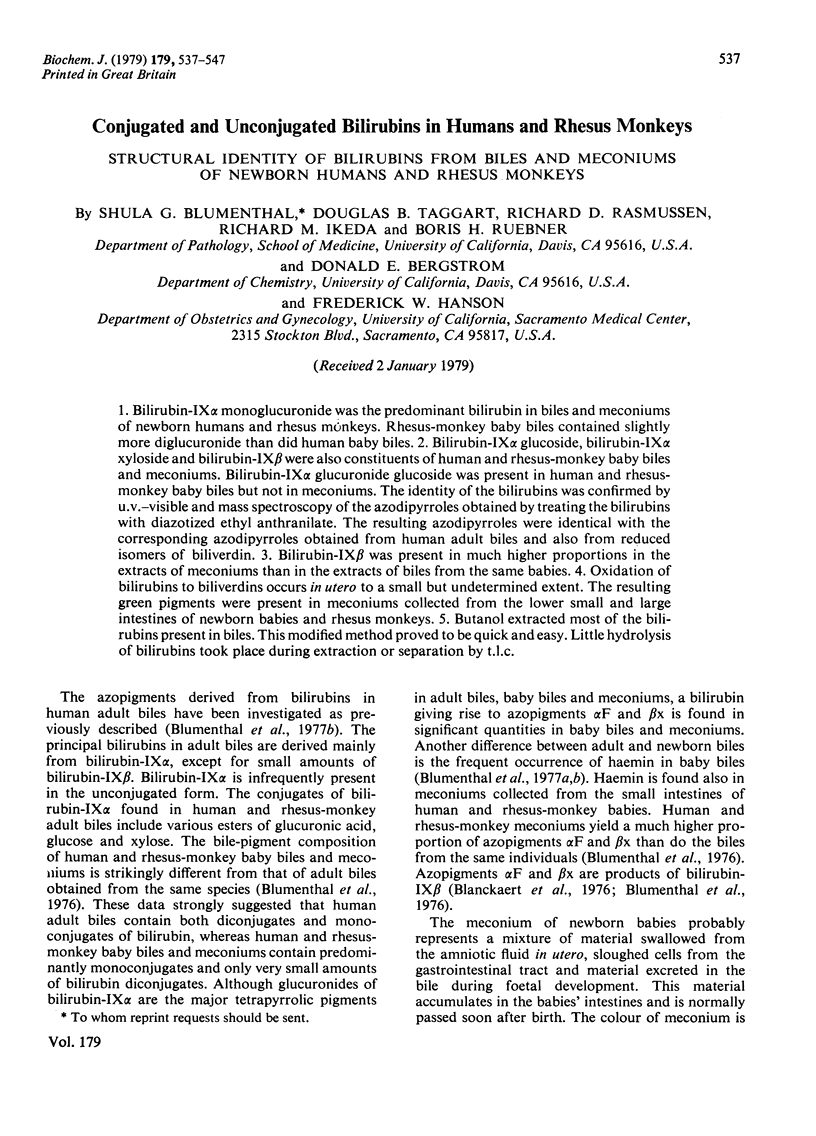
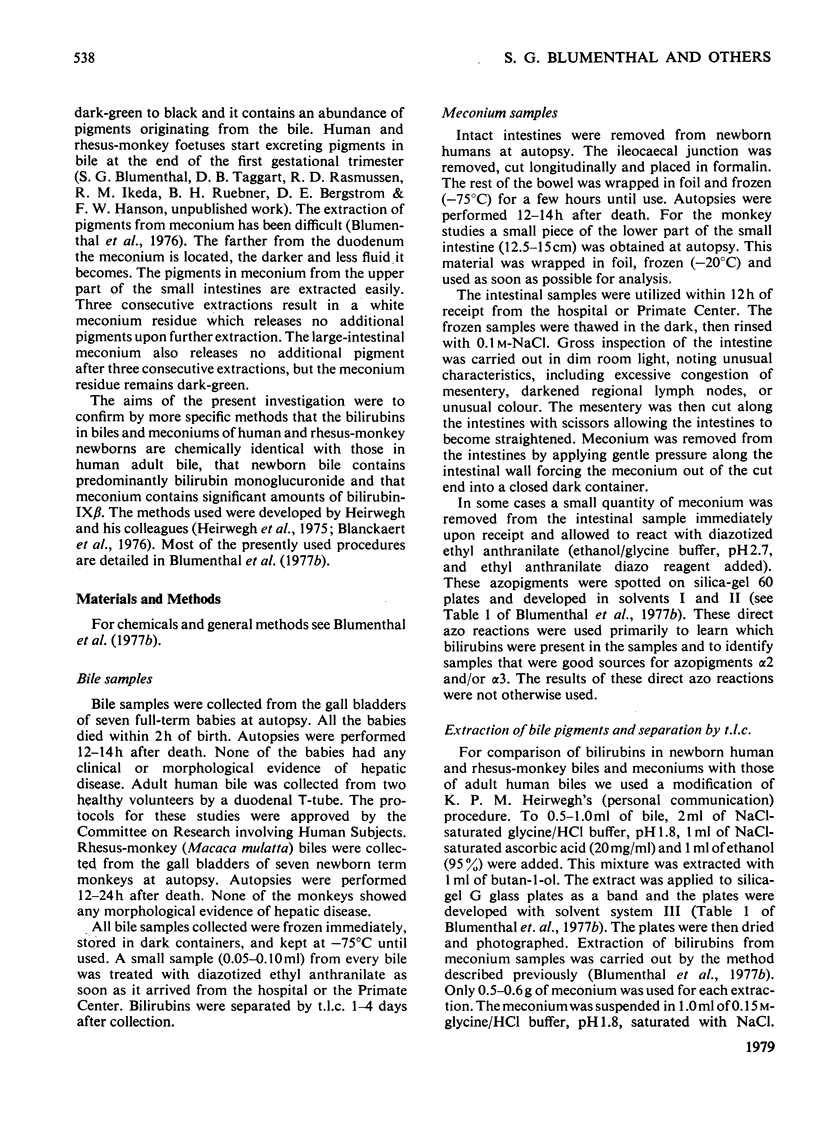
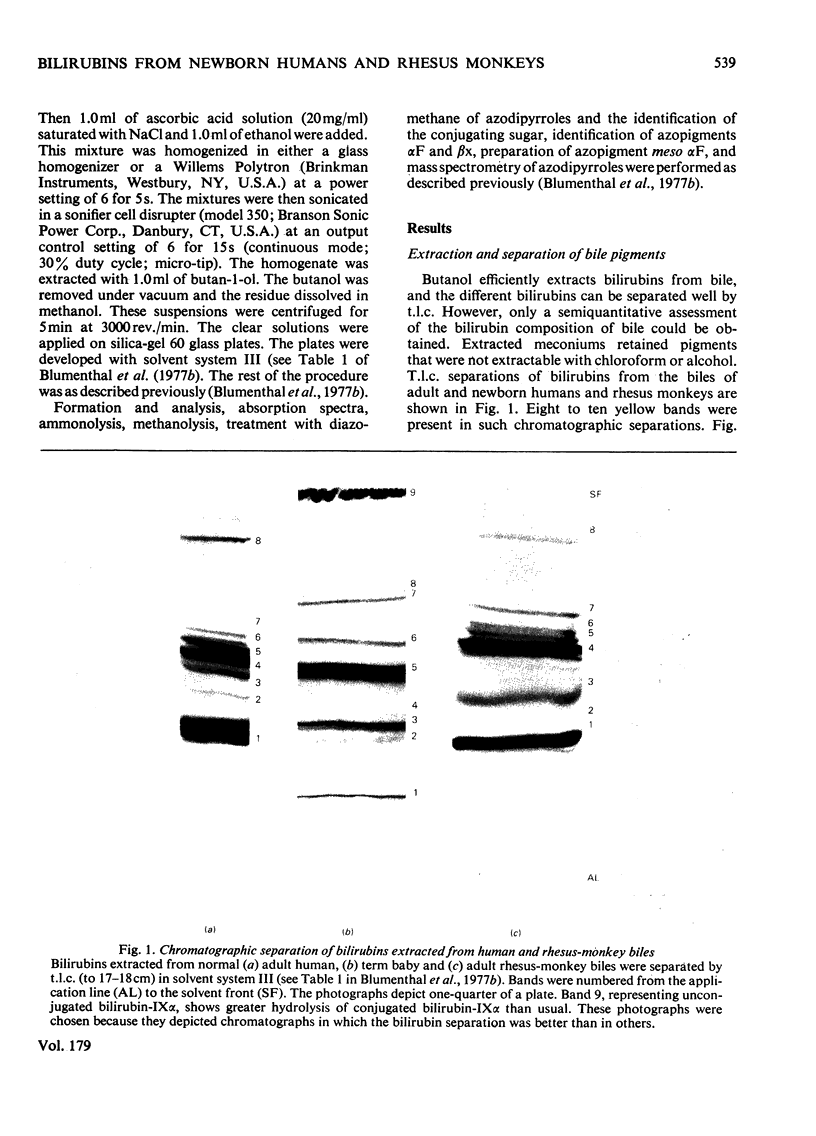
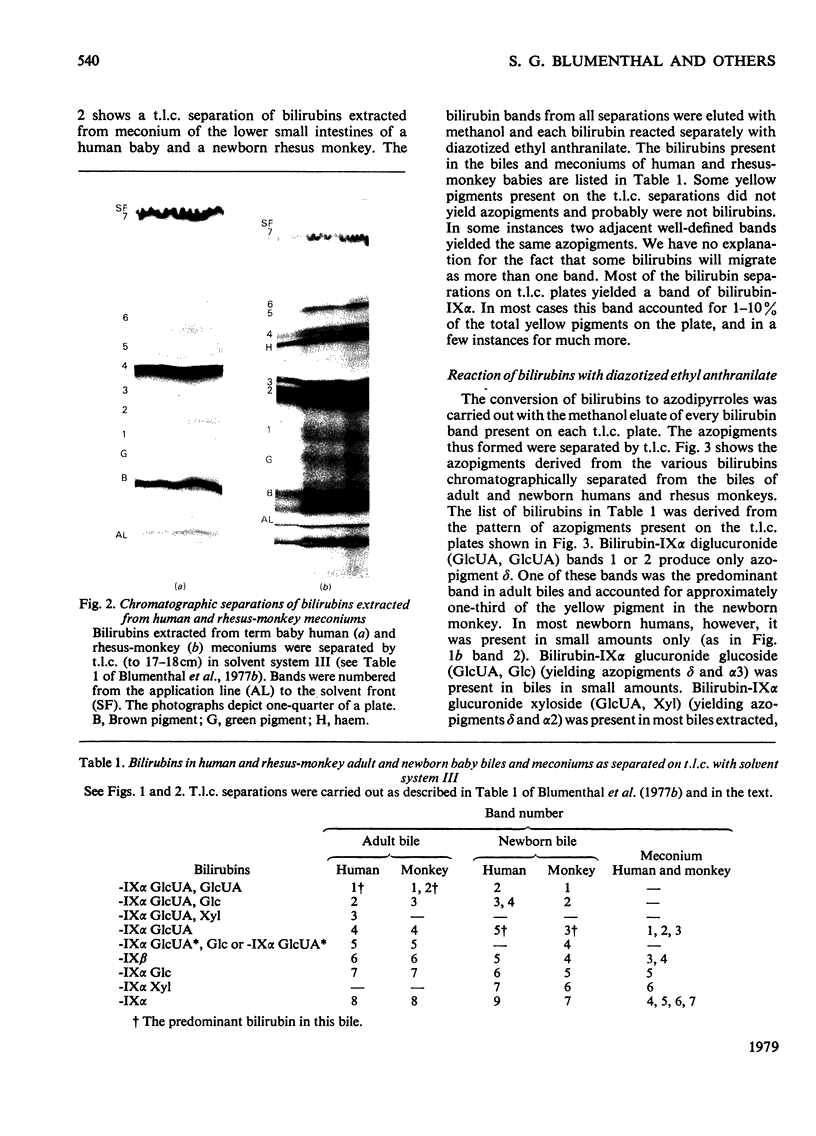
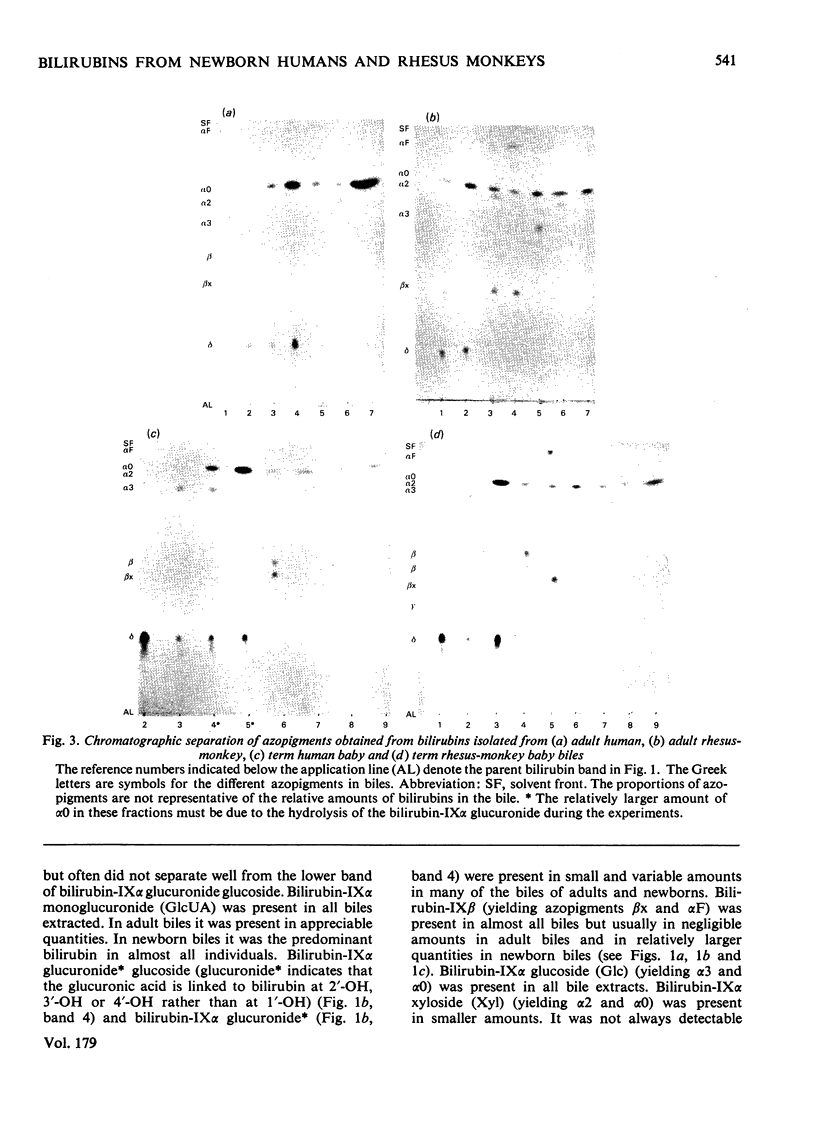
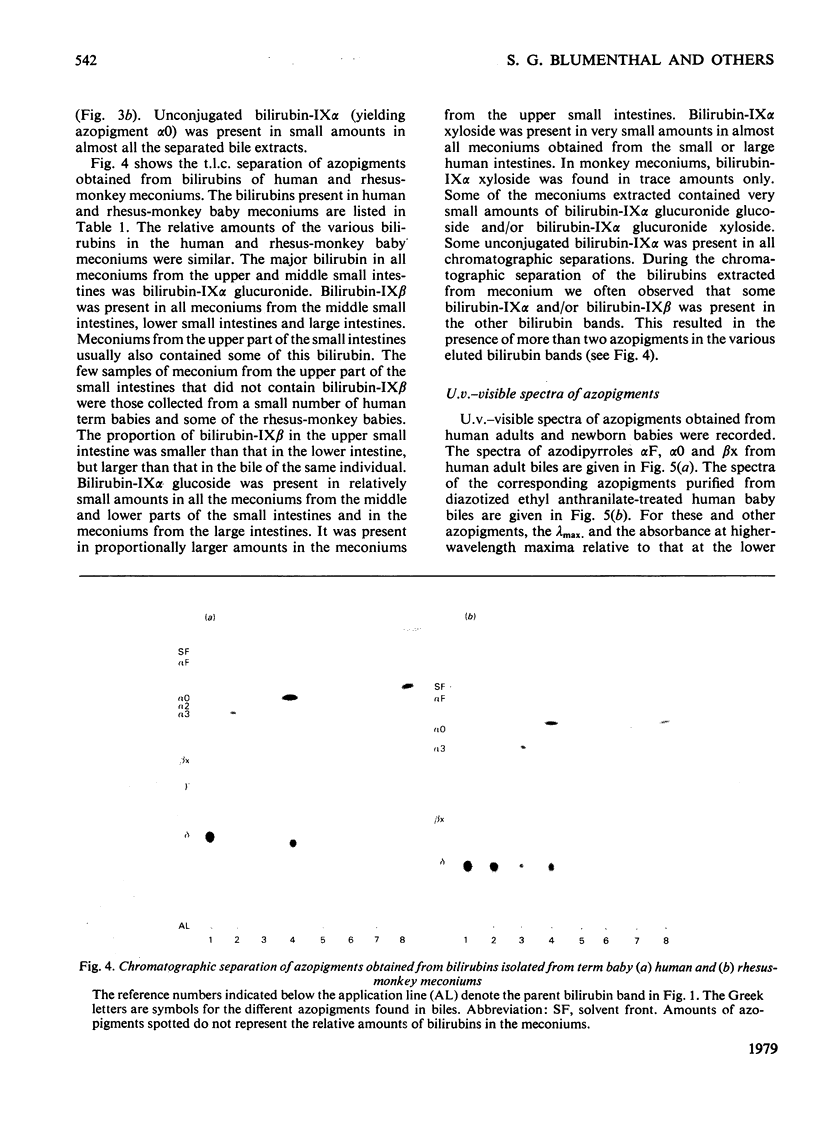
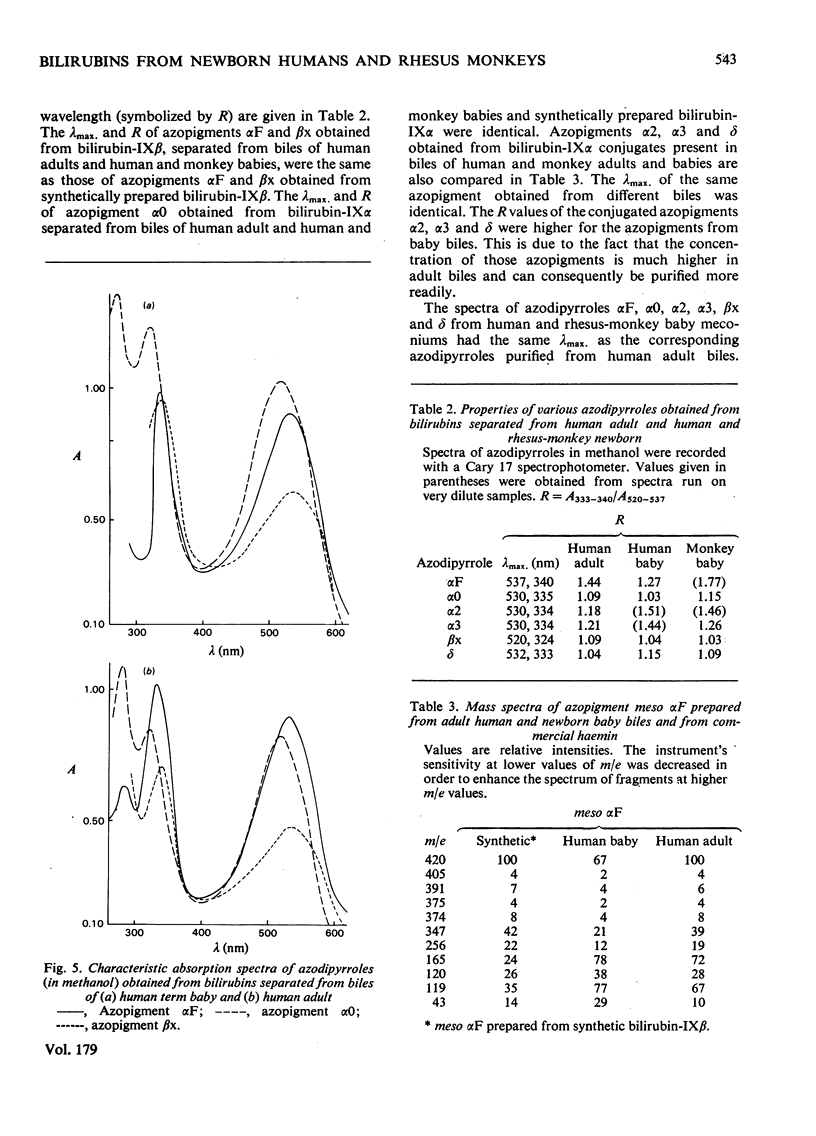
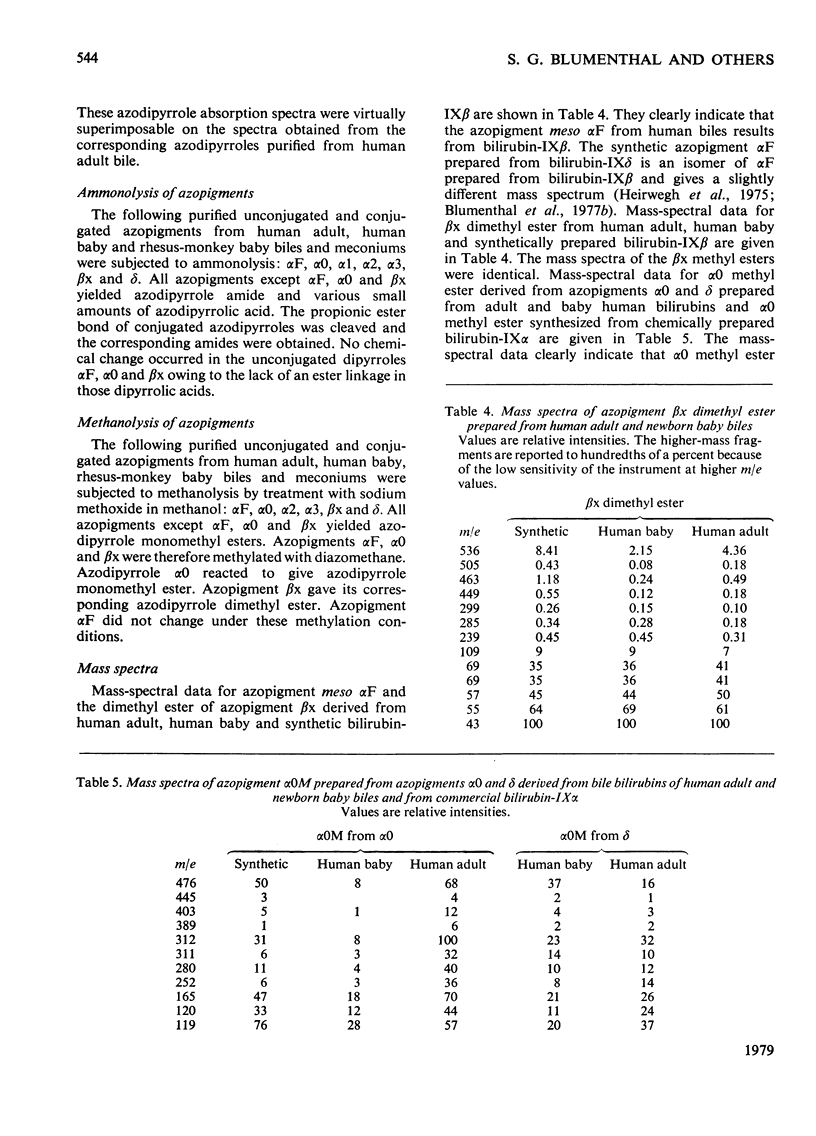
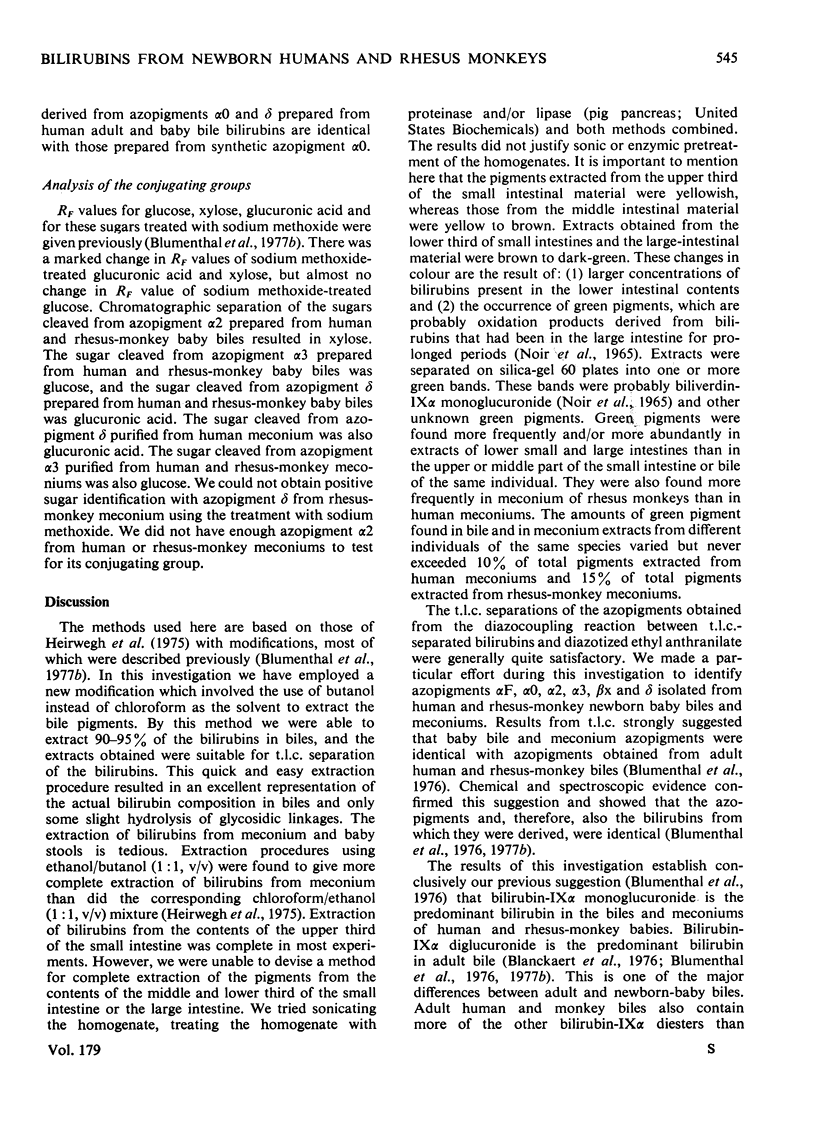
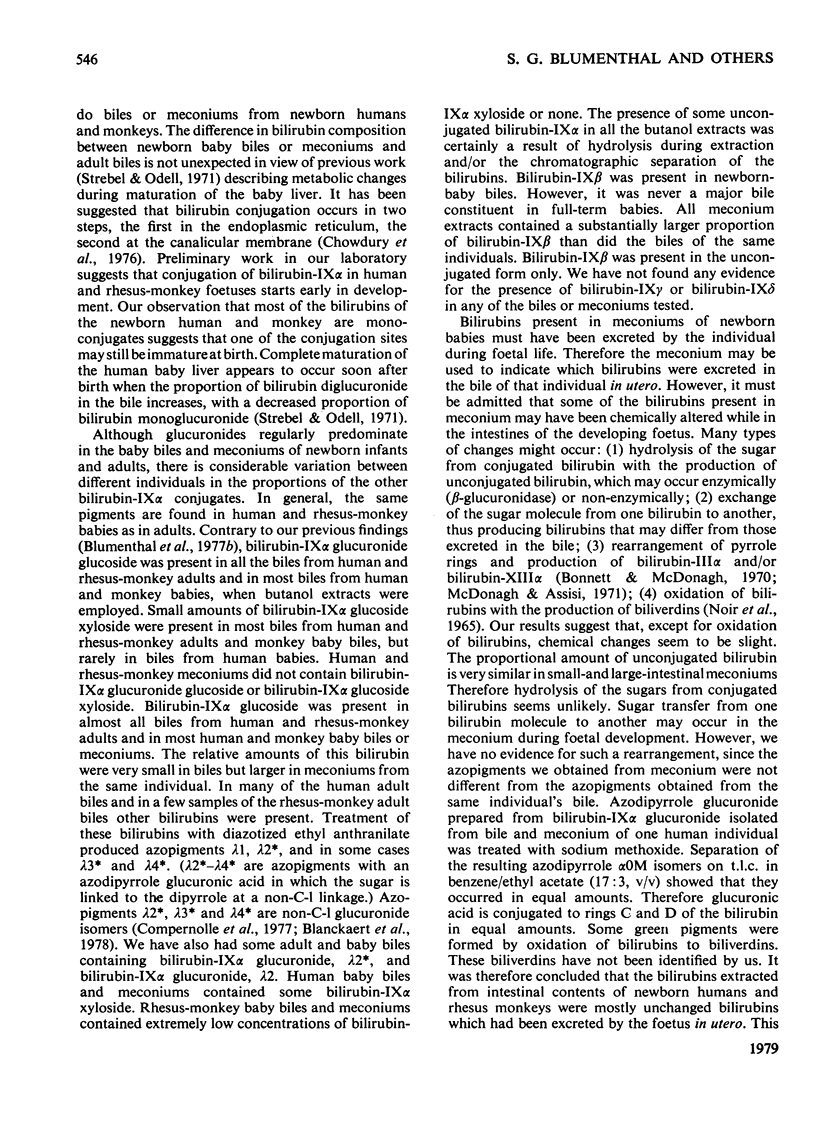
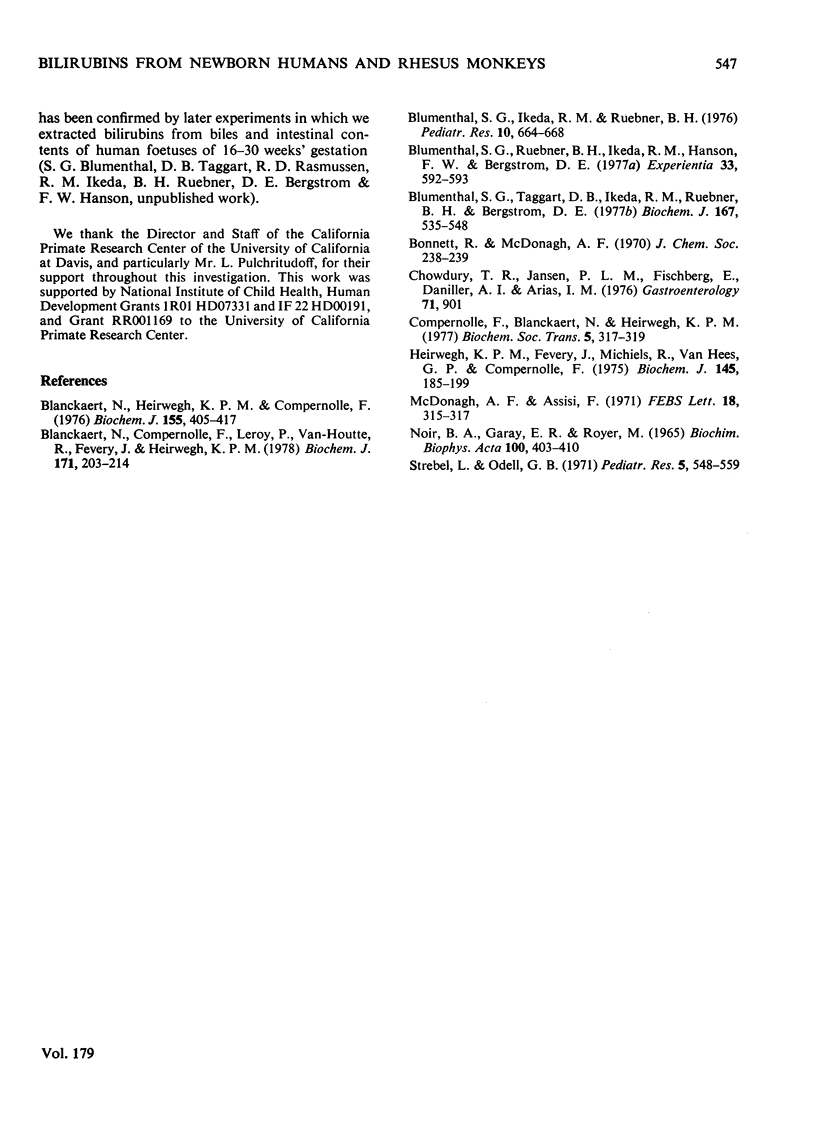
Images in this article
Selected References
These references are in PubMed. This may not be the complete list of references from this article.
- Blanckaert N., Compernolle F., Leroy P., Van Houtte R., Fevery J., Heirwegh K. P. The fate of bilirubin-IXalpha glucuronide in cholestasis and during storage in vitro. Intramolecular rearrangement to positional isomers of glucuronic acid. Biochem J. 1978 Apr 1;171(1):203–214. doi: 10.1042/bj1710203. [DOI] [PMC free article] [PubMed] [Google Scholar]
- Blanckaert N., Heirwegh K. P., Compernolle F. Synthesis and separation by thin-layer chromatography of bilirubin-IX isomers. Their identification as tetrapyrroles and dipyrrolic ethyl anthranilate azo derivatives. Biochem J. 1976 May 1;155(2):405–417. doi: 10.1042/bj1550405. [DOI] [PMC free article] [PubMed] [Google Scholar]
- Blumenthal S. G., Ikeda R. M., Ruebner B. H. Bile pigments in humans and in nonhuman primates during the perinatal period: composition of meconium and gallbladder bile of newborns and adults. Pediatr Res. 1976 Jul;10(7):664–668. doi: 10.1203/00006450-197607000-00007. [DOI] [PubMed] [Google Scholar]
- Blumenthal S. G., Ruebner B. H., Ikeda R. M., Hanson F. W., Bergstrom D. E. Protohemin in bile during primate development. Experientia. 1977 May 15;33(5):592–593. doi: 10.1007/BF01946515. [DOI] [PubMed] [Google Scholar]
- Blumenthal S. G., Taggart D. B., Ikeda R., Ruebner B., Bergstrom D. E. Conjugated and unconjugated bilirubins in bile of humans and rhesus monkeys. Structure of adult human and rhesus-monkey bilirubins compared with dog bilirubins. Biochem J. 1977 Dec 1;167(3):535–548. doi: 10.1042/bj1670535. [DOI] [PMC free article] [PubMed] [Google Scholar]
- Compernolle F., Blanckaert N., Heirwegh K. P. The fate of bilirubin-IXalpha glucuronides in cholestatic bile: sequential migration of the 1-acylaglycone to the 2-, 3- and 4- positions of glucuronic acid. Biochem Soc Trans. 1977;5(1):317–319. doi: 10.1042/bst0050317. [DOI] [PubMed] [Google Scholar]
- Heirwegh K. P., Fevery J., Michiels R., van Hees G. P., Compernolle F. Separation by thin-layer chromatography and structure elucidation of bilirubin conjugates isolated from dog bile. Biochem J. 1975 Feb;145(2):185–199. doi: 10.1042/bj1450185. [DOI] [PMC free article] [PubMed] [Google Scholar]
- McDonagh A. F., Assisi F. Commercial bilirubin: A trinity of isomers. FEBS Lett. 1971 Nov 1;18(2):315–317. doi: 10.1016/0014-5793(71)80475-1. [DOI] [PubMed] [Google Scholar]
- NOIR B. A., GARAY E. R., ROYER M. SEPARATION AND PROPERTIES OF CONJUGATED BILIVERDIN. Biochim Biophys Acta. 1965 May 4;100:403–410. doi: 10.1016/0304-4165(65)90009-7. [DOI] [PubMed] [Google Scholar]



